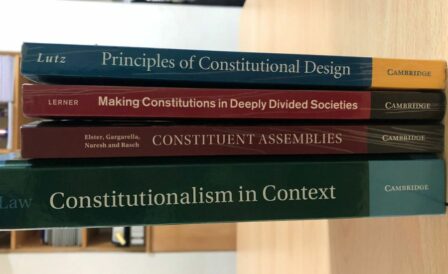
On 26 January 2023, as India celebrated her 74th Republic Day, Sonam Wangchuk, the popular engineer and educationist from Ladakh began a five-day climate fast at Khardung La near Leh. While protection of the fragile Himalayan region seemed to be the focal point of the protest, demands of constitutional safeguards for Ladakh under the Sixth Schedule were synchronous.
This demand is not new. Since the repeal of Article 370 and the creation of Ladakh’s union territory status, there have been continuous cries for both granting it statehood and including it within the Sixth Schedule. In December 2021, Ladakh MP Jamyang Tsering Namgyal spoke in the Lok Sabha in favour of Ladakh’s sixth schedule status to secure the land, employment and cultural identity of Ladakh and its people.
Does Ladakh have a legitimate claim to Sixth Schedule status?
The administration and governance of tribal areas in India are anchored by the Fifth and Sixth Schedules of the Constitution. The Sixth Schedule exclusively controls the administration of tribal areas in the North Eastern states of Assam, Meghalaya, Tripura and Mizoram. The Fifth does so for tribal areas in the rest of India. Protections under the Sixth however are significantly stronger providing for self-governance to tribal communities through the creation of District and Regional Councils that have significant legislative and executive authority with considerable powers.
In the Constituent Assembly, many members expressed their concerns with the Sixth Schedule. They feared that the Schedule would keep the tribal areas perpetually isolated. Assembly member Kuladhar Chaliha claimed that these autonomous councils would further intensify existing separatist tendencies and would be a threat to the functioning of a stable government.
Coming in support of the Sixth Schedule Gopinath Bordoloi, the Chairman of the Committee that Drafted the Sixth Schedule, defended it by arguing that many Hill Tribes in the North East were posturing towards complete independence. He suggested that the Sixth Schedule was the best way to integrate these communities into the Union by giving them some level of autonomy. J.J.M Nichols Roy, an influential figure in the creation of the Sixth Schedule, also supported the Schedule as an appropriate middle ground highlighting that legislative and executive powers of the autonomous councils were subject to the authority of the Governor. The Assembly finally adopted the Sixth Schedule into the Constitution.
From the debates and the text of the Sixth Schedule, it appears that a region was considered candidate for Sixth Schedule protection based on the following criteria. First, it should be a North Eastern Hill Tribe with a distinctive culture that needs special protections.The Ladakh claim falls short here as it isn’t a North Eastern state, even though it does have a unique tribal culture that possibly requires protection. But those from the region have attempted to show similarities with the North Eastern tribes.
The second criteria appears to the existence of an intention to secede. This isn’t the case with Ladakh. But considering that Ladakh has never had exclusive representative government, there seems to be a sense of disaffection even in the absence of a secession claim. Earlier it was part of the Jammu and Kashmir State, with some representation in the State’s Assembly. But with the revoking of Article 370, and its transformation into a Union territory, Ladakh lost this as well.
This probably explains why Ladakh has opted for the Sixth Schedule route. Although the concerns about protecting the tribal region could be addressed through the Fifth Schedule, Ladakh’s lack of statehood, its Union Territory status, the absence of representative government institutions, combined with rapid development and extensive tourism, have compelled many people in Ladkah to view the Sixth Schedule as the only way to protect their interersts.
More blog posts

5 Essential Writings on Constitution Making
07 September 2022 • By Editorial Team
Here we highlight 5 works in the field of constitution making that help readers to understand the processes involved in this field.

Chileans Overwhelmingly Reject a New Progressive Constitution
12 September 2022 • By Vineeth Krishna
In September 2022, the Chilean population voted to reject the Draft of a new Chilean Constitution. What does the rejection of a highly progressive draft constitution mean for future constitution-making projects?
